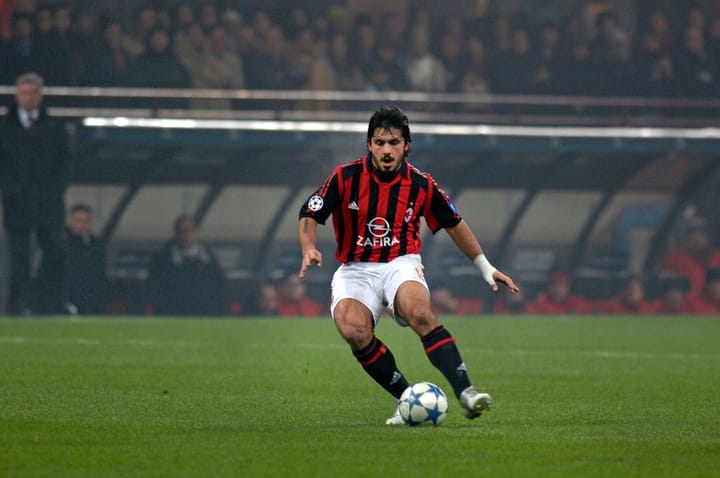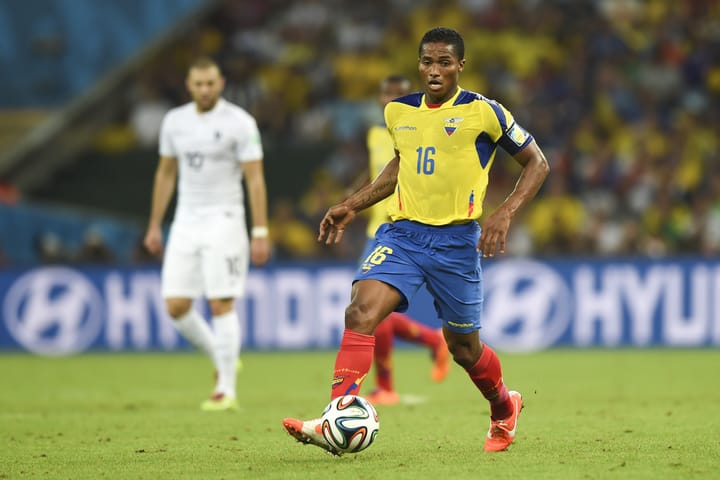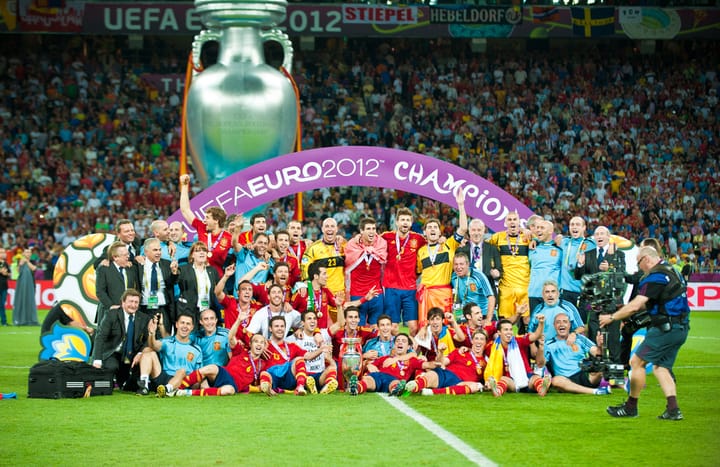Super Eagles' Finest: The Top 5 Nigerian Soccer Players of All Time
Nigerian soccer has produced an enormous number of talented players over the years. In this article we highlight five of the best.

Nigeria, known as the Giant of Africa, has a rich history of producing exceptional soccer players. With a population of over 200 million people, the country is a hotbed of talent and has made a significant impact on the global soccer stage. In this comprehensive guide, we will explore the top Nigerian soccer players of all time, their achievements, and their lasting legacy.
1. Nwankwo Kanu: The Unforgettable Hero
Nwankwo Kanu, also known as "Papilo," is undoubtedly one of the greatest Nigerian soccer players in history. Born on August 1, 1976, in Owerri, Nigeria, Kanu's career spanned over two decades and left an indelible mark on the sport.
Kanu's rise to prominence began when he represented Nigeria in the FIFA U-17 World Cup in 1993, where he showcased his exceptional skills and talent. He played a pivotal role in leading the Nigerian team to victory, scoring crucial goals and earning the tournament's Golden Ball award for the best player.
Kanu's success at the youth level attracted the attention of top European clubs, and in 1993, he joined Ajax Amsterdam. His time at Ajax was marked by numerous accomplishments, including winning the UEFA Champions League in 1995 and three Eredivisie titles.
Kanu's international career was equally illustrious. He represented Nigeria in various tournaments, including the Africa Cup of Nations and the FIFA World Cup. He played a crucial role in Nigeria's triumph at the 1996 Olympic Games, where the team won the gold medal.
2. Jay-Jay Okocha: The Magician on the Field
Jay-Jay Okocha, born Augustine Azuka Okocha on August 14, 1973, in Enugu, Nigeria, is widely regarded as one of the most gifted players to emerge from Africa. His incredible dribbling skills and creativity made him a fan favorite wherever he played.
Okocha's career took off when he joined the Nigerian national team, the Super Eagles, in 1993. He quickly became a key figure on the team, dazzling fans and opponents with his mesmerizing skills and ability to change the course of a game single-handedly.
Okocha's performances on the international stage attracted the attention of top European clubs, and he eventually joined Eintracht Frankfurt in Germany. He later moved to Paris Saint-Germain (PSG), where he became a household name and secured his status as one of the best players in the world.
Okocha's impact on Nigerian soccer is immeasurable. His flair and creativity inspired a new generation of players and put Nigerian soccer on the global map. He remains a revered figure in Nigerian soccer history and is considered a true legend of the game.
3. Rashidi Yekini: The Prolific Goal Scorer
Rashidi Yekini, born on October 23, 1963, in Kaduna, Nigeria, is hailed as one of the greatest goal scorers in Nigerian soccer history. Yekini made a significant impact on the sport with his incredible goal-scoring ability and commanding physical presence.
Yekini's journey to success began when he made his international debut for Nigeria in 1984. He quickly established himself as a prolific goal scorer, earning a reputation for his strength, agility, and clinical finishing.
Yekini's performances on the international stage attracted the attention of European clubs, and he eventually joined Vitoria Setubal in Portugal. He enjoyed a successful spell with the club, winning the Primeira Liga's top scorer award in the 1993–1994 season.
Yekini's international career was equally impressive. He represented Nigeria in several Africa Cup of Nations tournaments and played a crucial role in Nigeria's 1994 Africa Cup of Nations victory and the win over Bulgaria in the 1994 World Cup.
4. Sunday Oliseh: The Midfield Maestro
Sunday Oliseh, born on September 14, 1974, in Abavo, Nigeria, is widely regarded as one of Nigeria's finest midfielders. Oliseh enjoyed a fruitful club and international career. He was renowned for his technical proficiency, leadership abilities, and capacity to control games from midfield.
In 1993, Oliseh made his international debut for Nigeria, marking the start of his ascent to fame. His outstanding passing skills, tactical awareness, and defensive prowess allowed him to quickly establish himself as a key member of the team.
Oliseh eventually joined Ajax Amsterdam after impressing top European clubs with his performances on the international stage. At Ajax, he achieved success, taking home the Eredivisie championship in 1998.
There were several noteworthy accomplishments throughout Oliseh's international career. He represented Nigeria in the FIFA World Cup and Africa Cup of Nations, playing a pivotal role in Nigeria's success in the 1994 Africa Cup of Nations.
5. Segun Odegbami: The Dribbling Wizard
Segun Odegbami, born on August 27, 1952, in Abeokuta, Nigeria, is a legendary figure in Nigerian soccer history. Known for his exceptional dribbling skills, incredible pace, and goal-scoring ability, Odegbami left an unforgettable mark on the sport.
Odegbami's journey to success began when he made his international debut for Nigeria in 1976. He quickly established himself as one of the team's most exciting players, showcasing his dribbling skills, speed, and clinical finishing.
Odegbami's performances on the international stage attracted the attention of top clubs in Nigeria and abroad. He played a crucial role in leading the Nigerian national team to victory in the 1980 Africa Cup of Nations, where he emerged as the tournament's top scorer.
After retiring from professional soccer, Odegbami remained involved in the sport. He pursued a career in sports journalism and became an influential figure in Nigerian soccer, advocating for the development and promotion of the game at all levels.
As Nigerian soccer continues to evolve, new stars are emerging and leaving their own mark on the sport. With the likes of Victor Osimhen, Alex Iwobi, and Wilfred Ndidi, Nigeria's soccer legacy is in safe hands, and the nation's passion for the game will continue to shine on the global stage.




